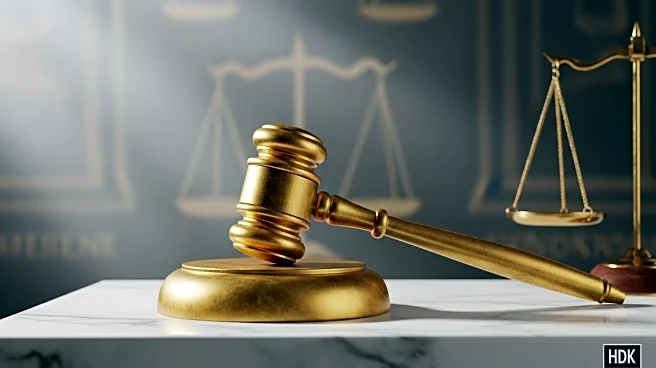What is the story about?
What's Happening?
Justice Brett Kavanaugh's recent comments suggesting Americans can sue ICE agents for excessive force have sparked criticism from civil rights attorneys. Kavanaugh's remarks came after the Supreme Court allowed the Trump administration to continue immigration patrols in Southern California. Critics argue that the court's conservative majority has made it nearly impossible to win such cases. The court has limited the ability to sue federal law enforcement officers for excessive force, with Kavanaugh in the majority of those decisions. The issue centers on whether immigration officials can use factors like ethnicity to establish reasonable suspicion.
Why It's Important?
The controversy highlights ongoing debates about civil rights and the limits of federal law enforcement accountability. Kavanaugh's comments contrast with the court's recent decisions that restrict legal recourse for excessive force claims. This situation underscores the challenges individuals face in seeking justice against federal agents. The broader implications involve the balance between national security measures and civil liberties, particularly in immigration enforcement. The case reflects tensions between the judiciary's role in protecting rights and the executive's authority in enforcing immigration laws.
Beyond the Headlines
The case raises questions about the 'shadow docket,' where the Supreme Court decides emergency cases without full explanation. Critics argue this practice lacks transparency and can have significant real-world impacts. Kavanaugh's remarks may signal a potential shift in the court's approach to Fourth Amendment rights, though the practical implications remain unclear. The legal landscape for suing federal agents is complex, with limited avenues for redress. The situation calls for a reevaluation of legal frameworks governing federal law enforcement accountability.















